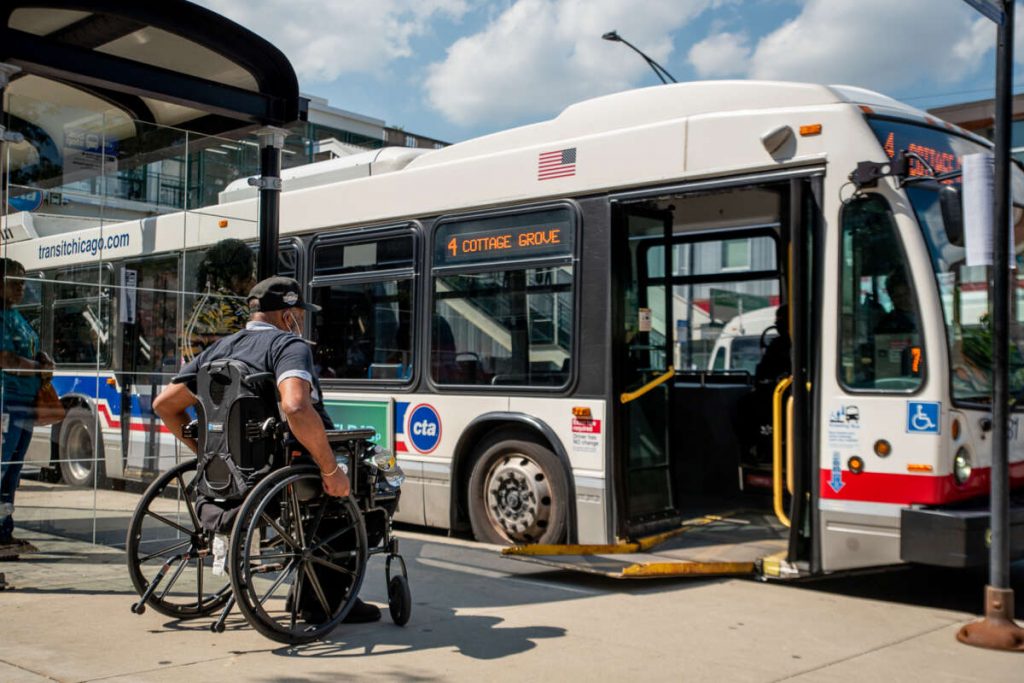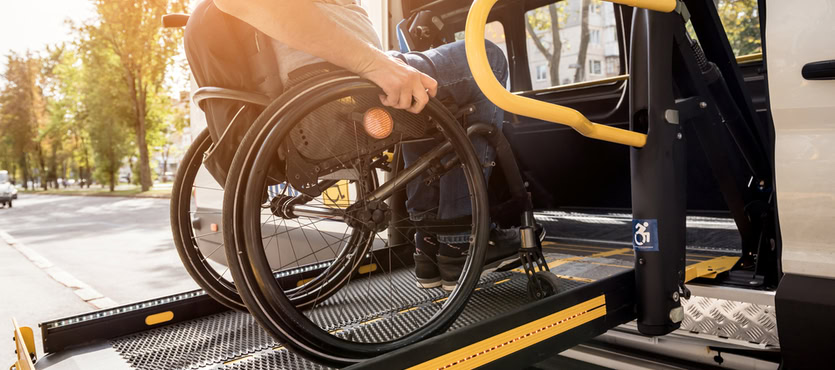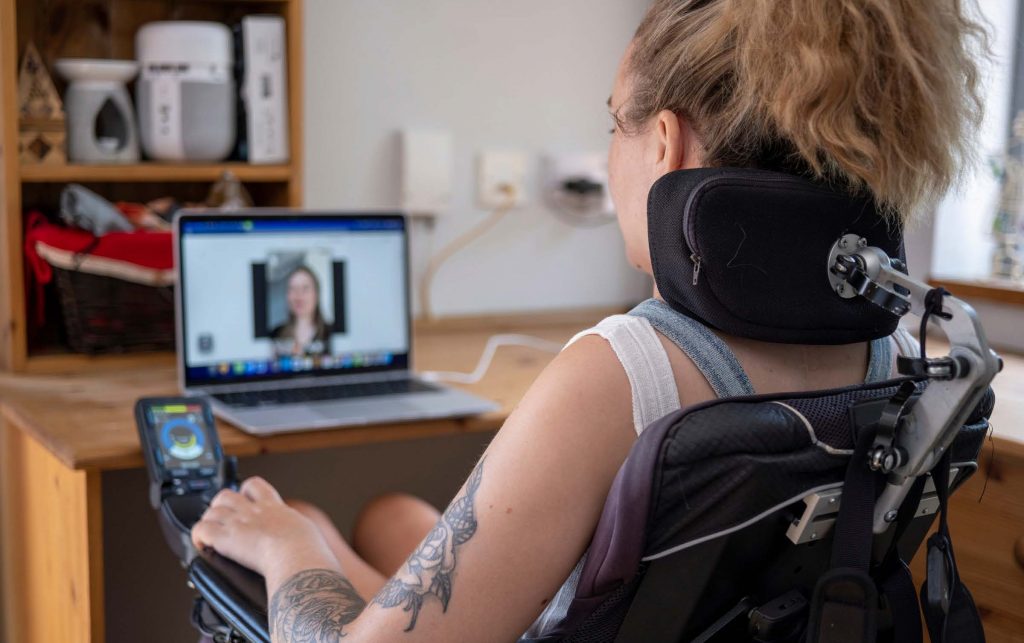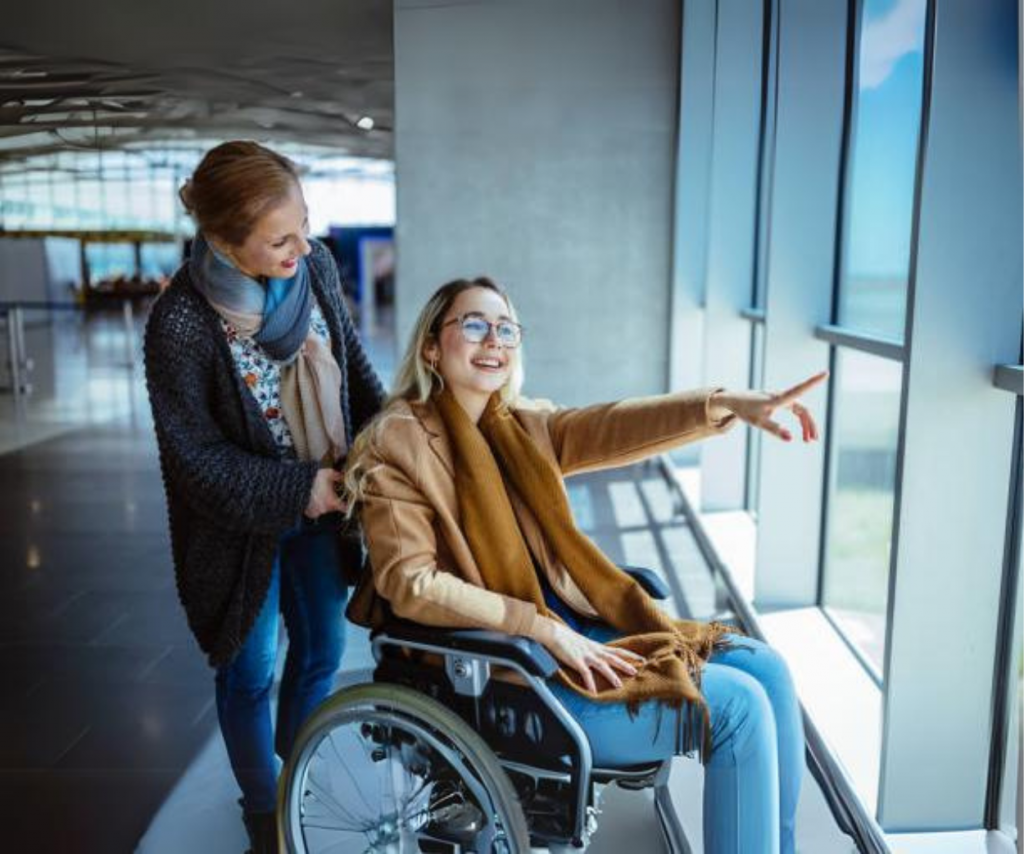Making Travel More Accessible
How a broad-based coalition is working together to develop securement standards to allow wheelchair users to stay in their chairs when using ground transportation

Transportation is vital for living an independent life—and a broad coalition of manufacturers, advocacy groups and more are working together to make it more accessible to people who use mobility equipment.

The SecureRide Coalition began their work last fall. The group, led by United Spinal Association, National Coalition for Assistive and Rehab Technology (NCART), and General Motors, currently includes a number of complex rehabilitation technology (CRT) equipment manufacturers such as Invacare, Ki Mobility, Permobil, Pride Mobility Products/Quantum Rehab and Sunrise Medical as well as the automobile manufacturer, Volkswagen Group of America. The coalition is working to develop a standard securement system that will allow wheelchair users to safely stay in their chairs while utilizing ground transportation—and eventually other forms of transportation.

“Now is a good time because there has been such a huge focus on accessible transportation,” said Alex Bennewith, United Spinal’s vice president, government relations. “We are developing a standard securement method so that we can make accessible travel available to as many people as possible.”
Much of the coalition’s current work, which is centered on creating a standard device used to secure wheelchairs, when used as seats in motor vehicles, will focus on ANSI/RESNA WC19 and ISO 7176-19 standards. These standards specify design requirements, test procedures and performance requirements for wheelchairs used as seats in vehicles.
The SecureRide Coalition plans to complete this work in three stages: developing a concept, engaging with organizations to test and publish standards and deploying a plan to engage with federal agencies and legislators. Bennewith says the group is currently working together to develop a standard securement prototype.
“Transportation is a huge issue for our membership,” Bennewith said. “There are certain components out there that people might not feel comfortable adding to their chairs without a safe, standard securement system. We’re currently looking at different mounts and components of securement devices so that we can work together to create a standard prototype.”
Wayne Grau, the executive director of NCART, a non-profit organization of suppliers and manufacturers of Complex Rehab Technology (CRT) products and services, says the coalition’s work is important and will lead to advancements.
“Our first goal is to come up with one securement method that will work with as many chairs, both manual and power, as possible,” Grau said. “Then, that securement device could be used on a variety of transportation methods, like trains, planes and more. We want to make this securement method standard so everyone can take advantage of it.”
With all major wheelchair manufacturers involved in the work, Grau estimates that they bring more than 300 years of combined manufacturing experience and know-how to the table.
“We have a really good group and the right people are working to solve this issue,” Grau said. “Our first goal is to develop a standard device that can work to secure as many chairs as possible, and our focus is on the consumer. We want to help people live the life they want to lead, and this is a way to be actively involved in expanding opportunities for people.”
The Biden Administration has made a priority of increasing access to all modes of accessible transportation. Just last July, there was an historic Department of Transportation (DOT) announcement of a final rule requiring accessible lavatories on single-aisle aircraft. Earlier this year, DOT published a proposed rule “ Ensuring Safe Accommodations for Air
Travelers With Disabilities Using Wheelchairs.”
In mid-May, President Joe Biden signed the FAA Reauthorization Act of 2024 into law. The act reauthorizes the Federal Aviation Administration through 2028, and includes a number of important provisions to make air travel more accessible and safer for people who use wheelchairs. While the law doesn’t apply directly to the SecureRide coalition’s work, it has brought attention to the need for more accessible travel.
It’s a moment the SecureRide coalition doesn’t intend to miss.
“We are focusing on personal vehicles, rideshares and public transit right now, but a lot of what we’re working on is transferable to airlines,” Bennewith said. “The Department of Transportation is currently very focused on accessible travel, so we have a great opportunity to build on that momentum.”
To learn more about the SecureRide Coalition, visit https://unitedspinal.org/secureride/.
More Stories
Related Articles
Back to School with Confidence
Navigating the Transition from Summer to School for CRT Users It’s back-to-school season, and the transition from a relaxed summer schedule to the more structured…
CRT Repair: Resolution, Repair & the Heart of the Matter
The Mobility Management podcast interview sheds light on the multifaceted challenges and urgent need for reforms in the repair and maintenance of Complex Rehab Technology…
Tips for Traveling with Your Wheelchair
Planning an upcoming trip? Perkowski, Morris and Lengel all suggested a few steps you can take to protect your wheelchair while flying. To learn more…


